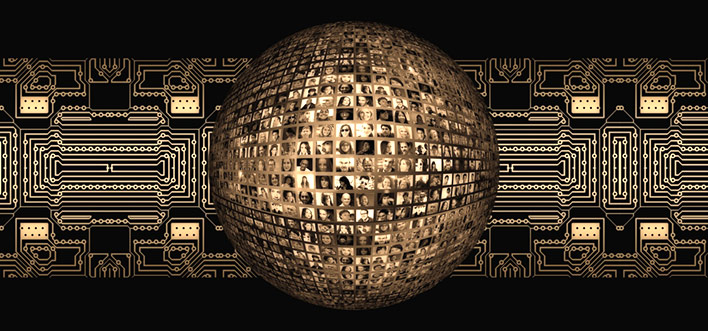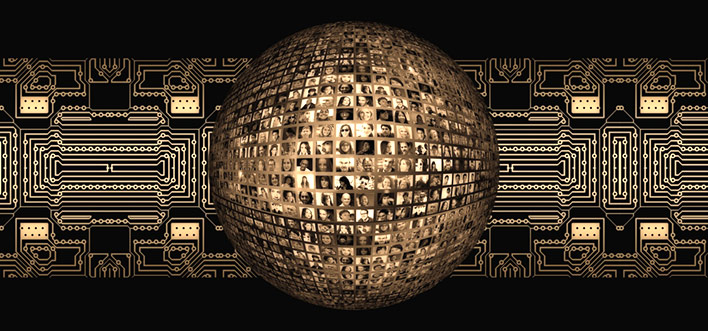
The Impact of Digital Technologies
Technological developments over the past 50 years have transformed human life like nothing before. Computers have revolutionized every aspect of life in the 21st century: communication, social relationships, commerce, politics—and even creativity. Some of these impacts have been negative and damaging. These changes are only accelerating, so it is critical that we do our best to understand—and control—them.
Viral Ideas

The COVID-19 Pandemic and Misinformation
We are in the midst of the greatest revolution in communication technology since humanity spread across the globe. However, experts in the fields of media and communications have been warning us for years that social media is using us more than we are using it.
Information Warfare and Reality Distortion
We have created a world in which information flows more freely and efficiently than ever before. And yet we are finding it harder to agree on basic facts about reality. For some, it is an opportunity to deliberately manipulate the perceptions of others for their own benefit.
Technology and Fragmentation
In their book, The Axemaker’s Gift, James Burke and Robert Ornstein show that every tool or technology ever invented took on a life of its own, changing humanity in ways that were neither suspected nor predicted by their original designers and recipients.
The Science of Fake News
The amount of false news online is clearly increasing, with serious consequences. Yet we still don't have an accurate enough understanding of the role that human behavior and human perception play in its dissemination and perpetuation.
The Age of Surveillance Capitalism
"Surveillance Capitalism" is a new paradigm of free enterprise whereby big tech corporations seek to convert all human experience into data, and create wealth by predicting, influencing and controlling human behaviour at scale.
On Tyranny
It is not the ordinary that drives us, but our emotions, especially fear and greed. To focus such drives, we look to leaders who often manipulate these emotions, and our tribal instincts, to harness us against some demonized “other.”
The True Believer
Tyranny cannot rise by force alone. A tyrant needs the consent of the majority made compliant and enthusiastic by circumstance, attitude, and indoctrination. But understanding these mechanisms can help us avoid such manipulation.
Mr. Putin: Operative in the Kremlin
In Mr Putin: Operative in the Kremlin, Fiona Hill and Clifford Gaddy tell the story of the demise of the USSR and the rise of Putin as a new tsar of a revived imperial Russia, harking back to its pre-communist past.
Taming the Web

The Evolution of Online Social Networking
To understand online social networks today we need to understand how the 'World Wide Web' has changed from when it was first invented by Tim Berners-Lee in 1989. The transition from then to now has been made possible by the pervasive use of computer algorithms.
What is a Social Media Algorithm?
In its simplest form an algorithm is any set of steps that, if followed, will accomplish a goal. Social media algorithms take in information about our behaviours, make decisions based on their hidden learning, and feed us back the results.
Social Networks
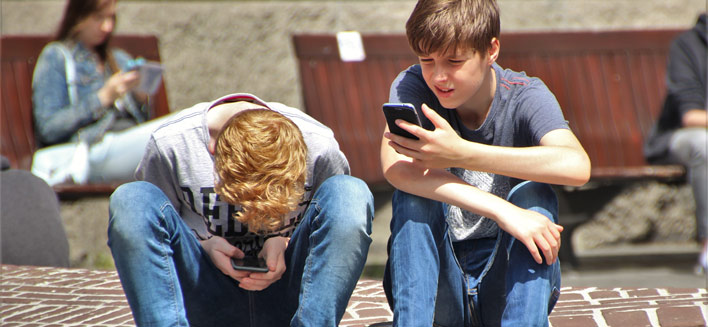
The Great Attention Heist
Recent revelations by IT professionals and social media executives confirm that their products were intentionally designed to “consume as much of your time and conscious attention as possible.”
The Marketplace of Ideas
Our traditional social networks, the ones we have belonged to since time immemorial, have always been our most important sources of information. But today, the information we get from our online social networks, unlike those of the past, are skewed by digital echo chambers.
Algorithmic Gatekeepers
Once humans alone brokered information. But now layers of online algorithms intermediate our access to the digital information ecosystem. What happens when social media algorithms become the prime gatekeepers?
Why Does Misinformation Spread So Easily?
A very basic problem that hinders us from successfully fighting false information is our failure to take into account well-established facts about human perception and psychology where misinformation is concerned.
New Perspectives on Combating Misinformation
Misinformation spreads rapidly online, with serious consequences for society. Fortunately, research-backed techniques and strategies can equip us with the tools to navigate today’s digital landscape and shape a more informed future.
You Can’t Not Believe Everything You Read
Anything that repeats a falsehood, even if it includes a rebuttal, amplifies and spreads the falsehood. It is not just the trending algorithms that are gamed by propaganda but our own minds, which are prone to influence.
Reclaiming the Public Square
To help bring about a healthy information ecosystem online, and thus a healthy society free of mass manipulation, we need to not just learn about our human nature but also make effective regulatory reforms.
The Anxious Generation
In The Anxious Generation, social psychologist Jonathan Haidt focuses on the alarming rise in teen mental illness tied to smartphone addiction that has swept across many countries in recent years, specifically affecting Gen Z (those born in 1995 and later).

The Anxious Generation
How the Great Rewiring of Childhood Is Causing an Epidemic of Mental Illness
An essential investigation into the collapse of youth mental health—and a plan for a healthier, freer childhood.
By Jonathan Haidt (2024)
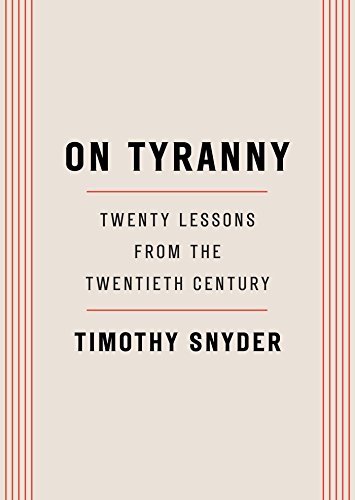
On Tyranny
Twenty Lessons from the Twentieth Century
Timothy Snyder
It is not the ordinary that excites and drives us, but our emotions, especially fear and greed. To focus such drives, we look to a leader, and leaders often manipulate these emotions and our tribal instincts to harness us against some demonized “other”—like the Jew for the Nazis; the Rwandan Tutsi for the Hutus; or people of color for White Supremacists.
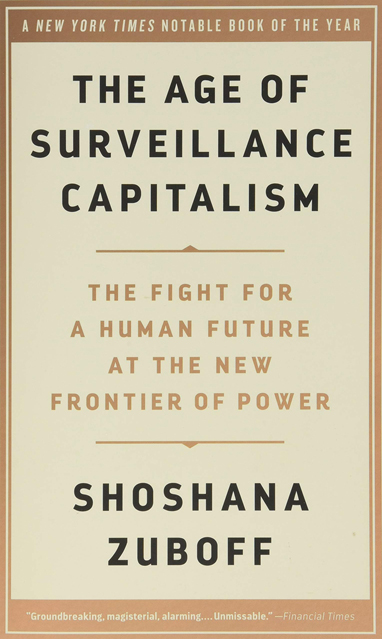
The Age of Surveillance Capitalism
The Fight for a Human Future at the New Frontier of Power
Shoshana Zuboff
The internet has developed a new form of exploitation, like nothing we’ve seen before. The apt term Shoshanna Zuboff coins for it, “surveillance capitalism” describes a novel paradigm of free enterprise which seeks to convert all human experience into data, and create wealth by predicting, influencing and controlling human behaviour at scale.

